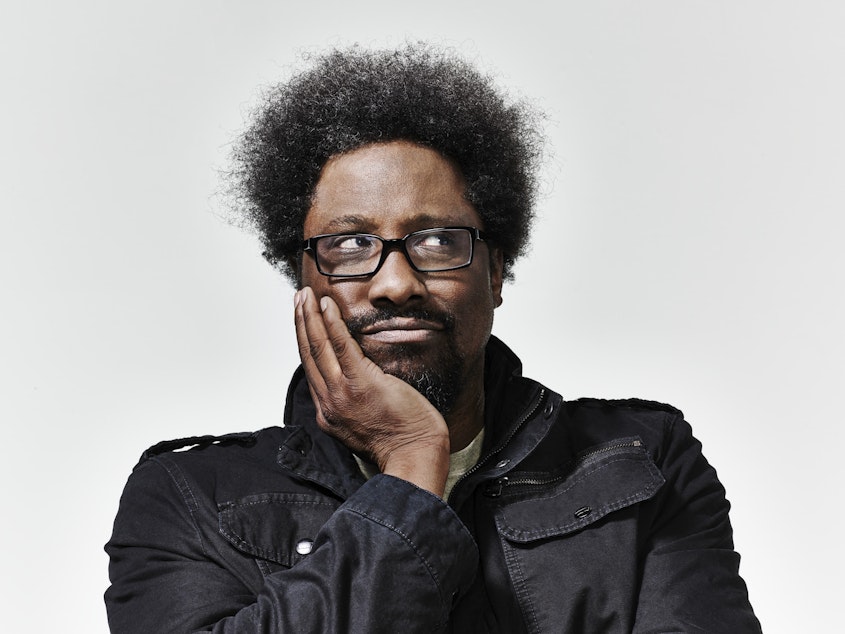W. Kamau Bell to white people: ‘Cape up, man. Do something’

W. Kamau Bell remembers the first time he encountered blatant racism — which until then seemed like an outdated concept his mom talked about. He was 15 years old and shopping at Rose Records in Chicago when a store security officer threw him (literally) out into the street.
It was an unsettling and humiliating experience, Bell recalled while speaking with KUOW’s Jeannie Yandel.
“That’s when I realized that my mom was right,” Bell said. “And that black meant the same thing as when she was a kid, as when I was a kid, as it does right now. That in the eyes of many, you’re seen as a criminal, a future criminal — but certainly less than.”
So, Bell got help: “I went home and told my mom that we needed to do something.” They returned to the store the next week, bringing along a white friend of Bell’s (his name was Rob) whose father had clout with the store managers — and he said that’s what caused them to take action against the abusive employee.
Now, Bell is a 44-year-old comedian and the host of The United Shades of America on CNN. He’s also the author of a newly-released book with what might be the year’s most specific title, "The Awkward Thoughts of W. Kamau Bell: Tales of a 6'4", African American, Heterosexual, Cisgender, Left-Leaning, Asthmatic, Black and Proud Blerd, Mama's Boy, Dad and Stand-Up Comedian."
Sponsored
The story of what happened at Rose Records nearly 30 years ago underscores one of Bell’s central points: that those who benefit from white privilege (like Rob) should help those who don’t.
“White people are not using their white privilege effectively, and that’s all white people,” Bell said. He sees ending oppression as a goal that should span the nation’s political divide. And he said that white people who refuse to acknowledge their privilege aren’t helping matters.
“Use your white privilege to help people,” Bell said. “I feel like most white people are like Clark Kent walking around pretending not to be Superman. Like, cape up man. Do something.”
Bell said solutions aren’t hard to find if you’re talking to the right people. He said that disadvantaged people — whether refugees or gang members in Chicago — know exactly what they need. On the Southside of Chicago, for example, they need jobs, better schools and police protection.
“All these people have the solutions,” Bell said. “They just need to be supported by people who can help them bring those to fruition.”
Sponsored
Bell recently interviewed white supremacist Richard Spencer, a controversial decision that led some to criticize Bell for helping Spencer broadcast his message. But Bell said one thing Spencer said stuck with him.
“He said this in the interview — ‘I just want white people to be as smart about race as black people are,’” Bell said. “And I laughed because I was like, ‘Oh, we’d love to help you with that.’ Now, I think we were both defining smart in different ways, but I agree with him. I don’t think white people, certainly on the left, are as smart about race as people of color are.”
Produced for the web by Amy Rolph.

